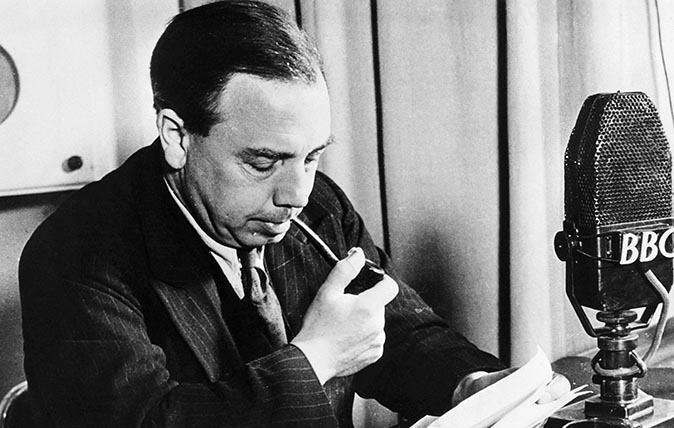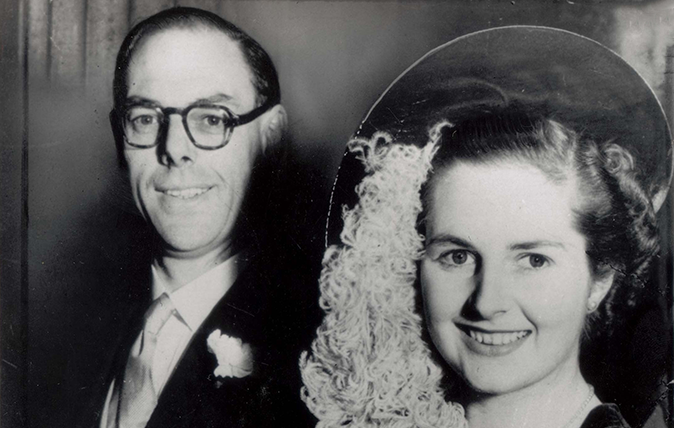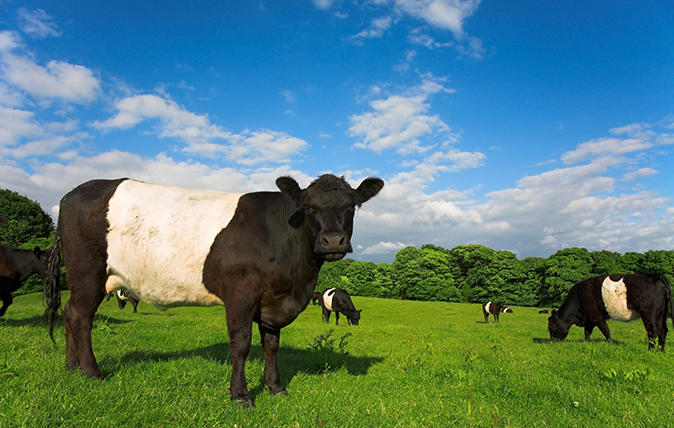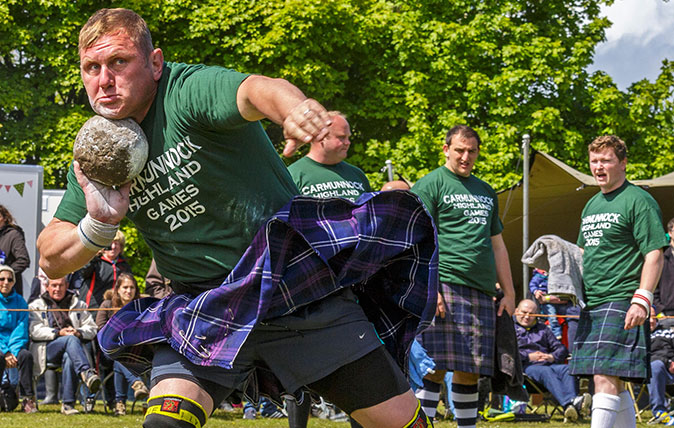The incredible story of Britain's hundreds of regional accents – and while they'll last forever
The British Isles’ rich landscape of regional accents doesn’t only define who we are, it’s part of our cultural heritage, says Flora Watkins.


Exquisite houses, the beauty of Nature, and how to get the most from your life, straight to your inbox.
You are now subscribed
Your newsletter sign-up was successful
When Angelina Jolie exclaimed ‘Ay up me duck’ to actor Jack O’Connell at the Hollywood Film Awards in 2014, she baffled much of her audience, yet simultaneously delighted denizens of the East Midlands.
Mr O’Connell, who was born in Derby, has said that he grew up thinking ‘we all refer to each other as ducks’, but, of course, with this affectionate greeting, he immediately identifies himself as part of a distinct tribe.
Our accents are a sizable part of what defines us. Would Sylvia Plath’s first meeting with ‘that big, dark, hunky boy’ Ted Hughes, have been quite so explosive (she bit his cheek) had he spoken in, say, clipped Received Pro-nunciation (RP), rather than a deep, flinty West Riding accent, redolent of Heathcliff?
British regional accents are bound up with ‘identity, the social influences you have around you and your aspirations – what you want for your children,’ notes Jane Setter, Professor of Phonetics at the University of Reading. They can also pass on revealing pieces of information about our lives. Remember Mrs Thatcher’s famous lapse, in the Commons, into the Lincolnshire dialect of her youth – ‘he’s frit’ – when attacking Denis Healey, after years of voice ‘softening’ sessions and the childhood elocution lessons that were standard for grammar-school pupils of the time?

Geographically, rather than metaphorically, speaking, Grantham to Finchley isn’t far at all. However, within a relatively small space, there nestles a rich and colourful vocal tapestry – the UK boasts more accents than the whole of North America.
‘Even when English was emerging in these shores, in the mouths of the Anglo-Saxons about 1,500 years ago, it was spoken differently in the North, the South and Scotland,’ explains Jonnie Robinson, Curator of Spoken English at the British Library.
‘Each will have spoken a slightly different dialect and, until the start of the 20th century, there was very little contact across geographic space – so, for more than 1,000 years, those local differences were preserved.’
Exquisite houses, the beauty of Nature, and how to get the most from your life, straight to your inbox.
Mr Robinson is responsible for creating a vast collection of regional speech, including recordings from the first survey of English dialects, from the 1950s, together with more recent donations to the Evolving English Word Bank project. Visitors to the library were encouraged to record their voices and donate local words. It’s a veritable linguistic smorgasboard.
Asked to select a couple of delicacies, Mr Robinson opts for ‘puggle’, a word donated to the Word Bank in 2010 by a young woman from the South of England. And no, it isn’t the name for a designer dog, but a word meaning to prod, or poke about. This, says Mr Robinson, is ‘a great example of how dialect survives, even in the supposedly dialect-free Home Counties’.
From the 1950s survey, he recommends listening to a ‘wonderful description of baking bread’ by a woman from Welwick, in the East Riding of Yorkshire. It’s an extraordinary piece of oral history from a different age: the speaker’s accent, as she adds ‘floor’, ‘yesht’ and ‘warm watter’, is one that has all but disappeared.

If the way we sound speaks volumes about ourselves, then so does the way in which we hear others. A 2014 survey by the dating site eHarmony found that RP was considered ‘the most attractive’ accent.
‘You’d think, now, that RP wouldn’t score that highly, because we’re much more exposed to regional accents on television, but the assumption is they’re [the speaker] educated and earning money,’ surmises Prof Setter.
Because of its dominant role in broadcasting, RP also scores highly when people are asked ‘Is this an authoritative voice?’, but ‘it doesn’t come out as very “friendly”,’ adds Mr Robinson, ‘whereas Geordie does’.
Geordie also came top for ‘most humorous’ in the eHarmony survey, followed by Liverpool, with respondents praising the Geordie Sarah Millican and Liverpudlian comedian John Bishop.
‘If it had been the age of Twitter, I’d have been trolled to bits.'
A 2008 study by lifeboat charity the RNLI found that the most ‘calming’ accent in an emergency was ‘Scottish’. (Those north of the border will quite rightly point out that there is a broad spectrum of Scots accents, from the High Morningside of Miss Jean Brodie to the Gorbals – just as there’s considerable variation across Wales and Ireland.)
The reaction when Susan Rae took to the airwaves in 1983, as the first non-RP continuity announcer on Radio 4, was, however, anything but calm. ‘There were a lot of letters,’ she recalls.
‘If it had been the age of Twitter, I’d have been trolled to bits. One chap called to say “She should get back to the hills and the heather”; another said: “This wee Scottish lassie is a breath of fresh Highland air.” I’m 6ft tall and from Dundee,’ she laughs.
At about the same time, prejudice against the West Country accent – ‘the assumption that you’re a bit slow’ – prompted Andy Keith-Smith to start printing T-shirts with local dialect slogans from his native Bristol.
‘Gurt lush’ (Bristolian for ‘very nice’) was followed by ‘Alright my luvver’, ‘Ark at ’ee’ and ‘Proper job’ (although, arguably, the latter is Cornish – the St Austell brewery produces a Proper Job beer). In any case, the response, recalls Mr Keith-Smith, was ‘phenomenal – you’d walk down the road and spot 10 to 15 T-shirts in an hour’.
Happily, cultural and social shifts over the past 30 years mean that regional accents are ‘celebrated now in a way that they perhaps weren’t in previous generations,’ thinks Mr Robinson. Although some accents evolve and eventually disappear, others crop up in their place. Twenty years ago, there was concern that ‘Estuary English’ was pushing out RP – which itself only emerged in the 19th century.
Dialect coach Sarah Shepherd reveals that she ‘hasn’t had a request to teach Cockney in five or six years’, with directors increasingly asking for what’s known as MLE (Multicultural London English). MLE has been referred to, derisorily, as ‘Jafaican’, although it actually contains elements of Asian, African and Caribbean English, as well as Cockney.
‘It’s brilliant as an accent because it’s colour-blind,’ enthuses Miss Shepherd, although it’s ‘challenging’ to teach because ‘it’s changing all the time.’
Concern that dialects are dwindling as we become ever more hyper-connected is misplaced, believes Mr Robinson, so there’s no need for mithering (Northern England: to make an unnecessary fuss).
‘In 100 years’ time, there will still be a difference between Leeds and London, but it might not sound like Leeds does now.’ Spoken English, in all its glorious diversity, is good for at least another 1,500 years. Tidy, as they say in Wales.
Explore the British Library’s collection of accents and dialects at: http://sounds.bl.uk/Accents-and-dialects
Words on the street: Things you never knew about British regional accents
- RP may be the best-known form of spoken English around the world, but it’s estimated that it’s spoken by only 3%–4% of the population of the UK
- Words for ‘bread roll’ vary dramatically across the country. It is, variously, a cob in parts of the Midlands and the North, a batch in Coventry, a barm cake in Lancashire, a scuffler, breadcake or teacake in Yorkshire and a morning roll in Scotland. Bap is the favoured term in the South-East and elsewhere
- Mardy, a Midlands/north of England word for ‘moody’, reached a wider audience thanks to the Sheffield band Arctic Monkeys’ single Mardy Bum (2006)
- With his strong Norfolk accent, turkey farmer Bernard Matthews gave the nation the catchphrase ‘Bootiful’ in the 1980s
- H. Lawrence’s work is rich with the local dialect of Nottinghamshire. His poem The Drained Cup opens with the line: ‘T’snow is witherin’ off ’n th’ gress’
- It’s been suggested by linguists that British birds, cows and even cod may display regional accents

50 things Britain gave the world, from apologies to zoos
Throughout the centuries, Britain has led the world in all that is civilised, from culture to condiments and fast horses

A guide to the native cattle breeds of Britain, from Aberdeen Angus to Jerseys
How many of these native cattle breeds would you recognise from travelling through the British countryside or from the butcher’s

An old rectory that’s ‘one of the finest privately-owned homes in the East Riding of Yorkshire’ comes up for sale
A former rectory in a pretty village within the East Riding of Yorkshire has come to the market, a 19th

Credit: Highland Games (Getty)
The Highland Games: Dancing, bagpipes and giant men in kilts since 1314
In her 1931 novel Highland Fling, Nancy Mitford described the Highland games at Invertochie as ‘an extraordinary spectacle of apparently
